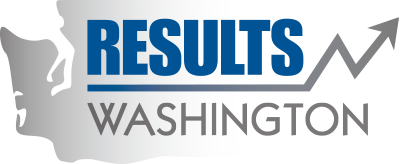Archived: Youth outpatient chemical dependency treatment retention
Retaining chemically dependent individuals in treatment, per their individual treatment plan, is essential to their recovery. The Behavioral Health Administration (BHA), Division of Behavioral Health and Recovery (DBHR) is committed to working with County Governments to improve retention rates of youth patients in publicly-funded outpatient chemical dependency treatment. Research indicates that remaining in treatment (including treatment initiation and engagement) for at least 90 days is associated with positive outcomes among youth, such as reductions in the likelihood of substance use following treatment.

The youth outpatient treatment (contract) retention rate has moderated downward over the past 8 quarters (Note: This measure only includes admissions that occurred at least 90 days before the most current data. The most recent data in the system includes records through March 2016, but this measure only includes admission data through December 2015, so all clients have a chance to be in treatment for at least 90 days.)
The current rate (admission data through December 2015) of 71.5%. The Behavioral Health Administration (BHA) has determined that this metric is completed.
Sustain the University of Washington’s Alcohol and Drug Abuse Institute (ADAI) Retention Toolkit on engagement and retention strategies that was developed and disseminated to treatment providers and other stakeholders in January 2015, to provide a technical resource to counties.
Develop new metrics that address youth client inititation and engagement in outpatient Substance Use Disorder treatment.
See analysis and plan at: BHA Action Plan – Youth Outpatient Treatment Retention
he Washington State Behavioral Health Advisory Council (BHAC) has a membership consisting of consumers, providers, advocates, and governmental representatives. The membership represents a balanced representation of the state’s population with respect to race, ethnicity, disability, and age, urban and rural. The Council partners with the Division of Behavioral Health and Recovery to make decisions that will best serve citizens in need of mental health and substance abuse treatment and prevention programs.
You may find more information on the BHAC at https://www.dshs.wa.gov/bha/division-behavioral-health-and-recovery/behavioral-health-advisory-council
